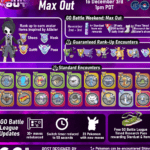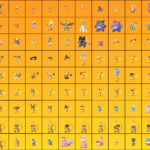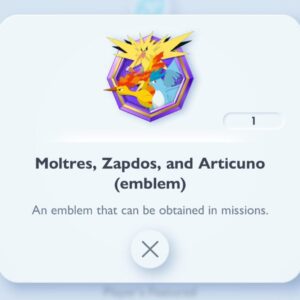Pokémon Go teases “blockbuster slate” of features, amidst major Remote Raid changes
The developer behind Pokémon Go, Niantic, has announced significant changes to the Remote Raid gameplay, aiming to rebalance a feature that has dominated the game’s economy and balance since its introduction during the pandemic. These updates are set to take effect soon, and they are designed to encourage players to engage more with in-person raiding.
New Limitations on Remote Raids
Starting from next Thursday, players will be limited to five Remote Raids per day. While this cap may be adjusted for specific events, it marks a notable shift in how players can engage with the game. Additionally, the cost of Remote Raid passes will increase significantly—from 100 to 195 coins for a single pass and from 300 to 525 coins for a pack of three. However, players may still receive one free pass as part of the game’s weekly rewards. To balance this, a discounted three-pack of in-person raid passes will be introduced, and the availability of XL Candy from in-person raids will increase.
Niantic’s Perspective on Remote Raids
These changes are intended to guide players away from Remote Raids, potentially provoking strong reactions from the community, especially among those who favored the lockdown-era bonuses that facilitated easier gameplay. Niantic’s decisions seemingly contrast with the preferences of some players, raising questions about the company’s vision for the game. To discuss these changes, Niantic invited insights from Ed Wu, Pokémon Go’s VP, who elaborated on the rationale behind the adjustments.
The Need for Change
During a detailed discussion, Wu explained that Remote Raids had become too convenient, serving as a shortcut that distorted the game’s economy. He emphasized that while Remote Raids would remain a part of Pokémon Go, the goal is to maintain a sustainable balance that encourages players to explore the real world together. Wu noted, “The world has largely moved back outdoors, and Remote Raid passes have come to dominate the overall experience in a way we never intended.”
Impact on Player Experience
Wu acknowledged that these changes would elicit strong reactions but reiterated that they are crucial for the game’s long-term health. He described the median player as someone who enjoys various aspects of Pokémon Go beyond raiding, such as catching Pokémon and social interactions. By limiting Remote Raids, Niantic aims to ensure a balanced experience for all players, not just those who favor remote gameplay.
Looking Back at the Evolution of Raids
Reflecting on the game’s history, Wu mentioned that when raids were first introduced in 2017, they required players to gather in person, making the journey to the gym a meaningful part of the experience. Niantic seeks to restore that sense of community and exploration, as remote gameplay has diluted the overall value of the experience. Wu stated, “Every game is about both the goal as well as the journey to that goal.”
Player Engagement and Future Plans
Despite the changes, Niantic is optimistic about the future, citing the positive engagement seen during recent in-person Elite Raids. Wu expressed excitement about the upcoming summer features, which are intended to enhance the gameplay experience and encourage players to engage more in their local communities. He teased a “blockbuster slate” of features that would be revealed soon, aiming to provide new and meaningful ways for players to interact with the game and each other.
Enhancing In-Person Raiding
Niantic is also working on features to facilitate in-person raiding, such as displaying lobby times without entering and showing the number of participants in nearby gyms. Additionally, the social app Campfire will soon launch globally, helping communities connect more effectively.
Future Features and Exciting Additions
Wu hinted at potential new features, such as Shadow Pokémon in raids, although he emphasized the need for any new addition to provide a meaningful experience. The focus remains on ensuring that any changes align with the core values of exploration and community engagement.
Balancing Revenue and Player Experience
Regarding the financial implications of these changes, Wu clarified that the goal is not to generate short-term revenue. Instead, the intention is to create a balanced system that supports the game’s longevity. He acknowledged that imposing a cap on Remote Raids underscores the company’s commitment to sustainable gameplay rather than extracting more money from players.
Community Building with Campfire
Campfire aims to strengthen local communities by connecting players and facilitating group activities. Wu highlighted the importance of local groups and expressed gratitude for the effort that players invest in forming these communities.
Conclusion
As Niantic prepares for these significant changes to the Remote Raid system, the anticipation for new features and community-focused initiatives grows. Players can expect a revitalized experience that emphasizes exploration, collaboration, and engagement with fellow Trainers in the coming months.



























Post Comment